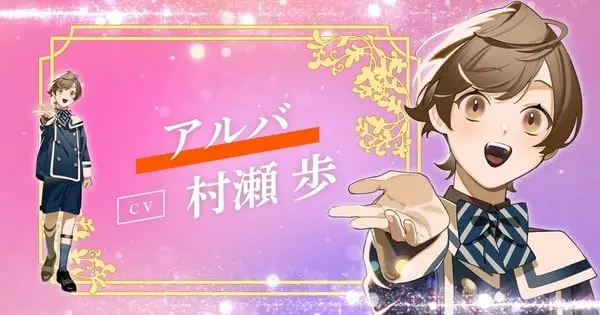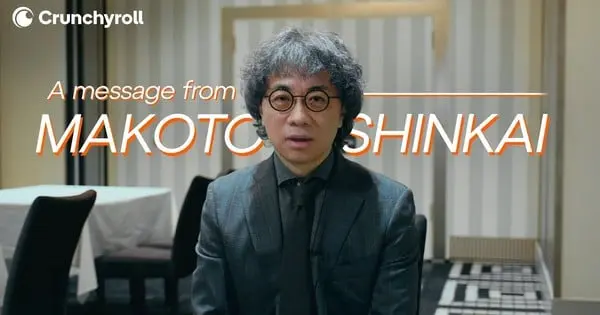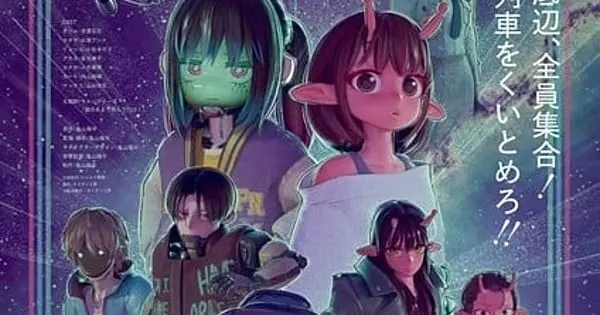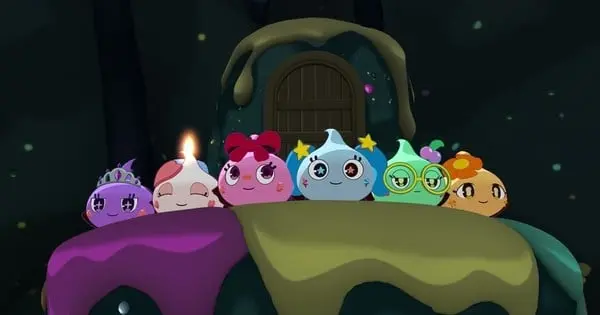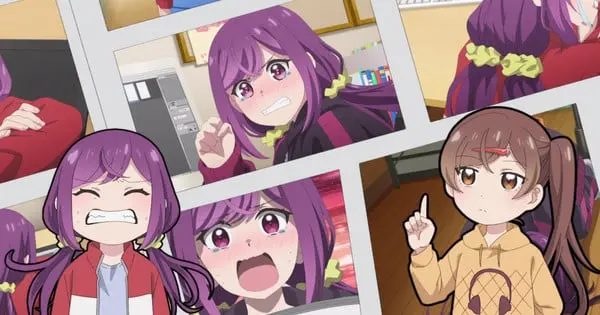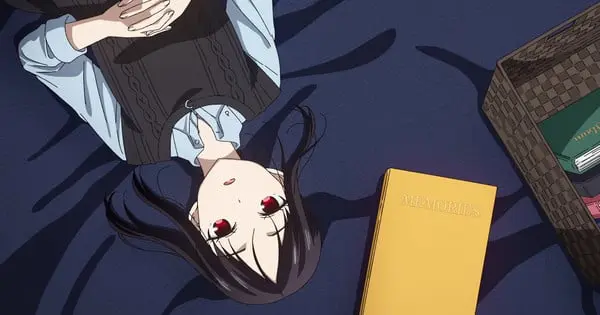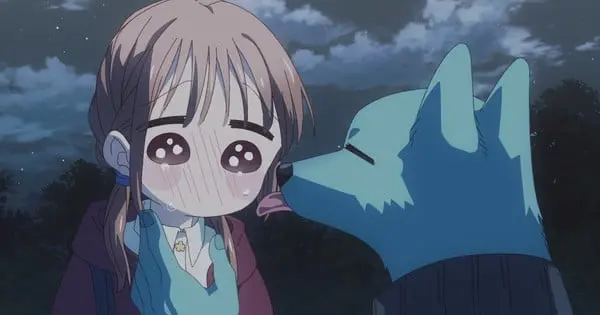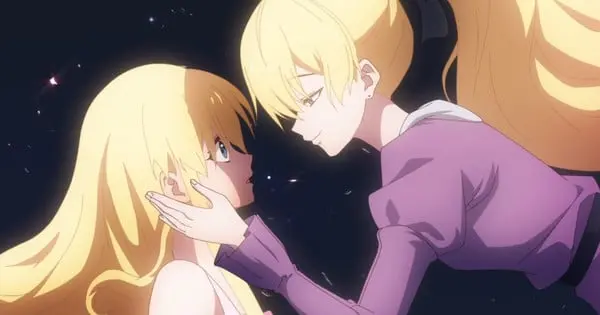The often-stressful yet undeniably passionate world of manga creation takes a peculiar turn in A Mangaka’s Weirdly Wonderful Workplace (笑顔のたえない職場です。, Egao no Taenai Shokuba Desu), particularly in its recently aired sixth episode. As fledgling shojo manga artist Nana Futami navigates the demanding landscape of deadlines and creative blocks, Episode 6, titled “Un étrange triangle amoureux” (“A Strange Love Triangle”), plunges her, and her steadfast editor Kaede Sato, into a comedic yet insightful professional dilemma that feels eerily akin to romantic betrayal. This installment not only deepens the unique bond between mangaka and editor but also introduces a complex dynamic rooted in past rivalries, making for a truly “weirdly wonderful” watch.
Futami’s Professional Predicament: An Offer She Can’t Refuse
The core conflict of Episode 6 arises when Nana Futami, a novice shojo manga artist whose work ethic is as earnest as her anxieties are abundant, receives an unexpected offer. An editor from a different magazine approaches her with a request for a new writing project. Despite her reluctance and the implicit feeling of “cheating” on her current editor, Sato, Futami finds herself unable to turn down the opportunity. This situation immediately establishes a comedic tension, as Futami grapples with the professional courtesy of accepting new work while feeling a personal sense of guilt towards Sato.
The series, which began its anime adaptation in October 2025, frequently highlights the relatable struggles of a creator, from stomach aches due to stress to late-night snacking and wild delusions. This new offer serves as another layer of pressure, testing Futami’s resolve and her loyalty, albeit professionally, to her established team. Her initial inability to refuse the second editor underscores her often-pushover nature, a character trait that frequently leads her into amusingly awkward situations.
Sato’s Stance: “I Feel Like I’ve Been Cheated On”
The episode truly shifts gears when Futami, wrestling with her secret collaboration, finally confides in her editor, Kaede Sato. Sato, known for her cool and collected demeanor, dramatically changes mood upon hearing the news. Her immediate reaction—declaring that she feels “cheated on”—is played for comedic effect but also subtly highlights the intense, almost intimate, bond that can form between a mangaka and their editor. This professional relationship often demands deep trust and mutual commitment, making external overtures feel like a personal slight.
The “cheating” metaphor is a recurring joke throughout the episode, underscoring the vital connection between Nana and Kaede. While exaggerated for humor, it cleverly reflects the possessiveness and dedication editors can feel towards their artists, particularly in the highly competitive manga industry. This unexpected display of emotion from the usually stoic Sato offers valuable insight into her character, revealing a passionate dedication beneath her composed exterior.
The Return of a Rival: Kaede Sato’s Past Entanglement
The plot thickens with the revelation that the new editor pursuing Futami is no stranger to Sato. It turns out this individual is a rival from Sato’s college days, someone who consistently copied her ideas and often managed to outperform her. This history injects a fresh layer of complexity into the “love triangle,” transforming it from a simple professional conflict into a deeply personal one for Sato.
This rivalry not only explains Sato’s heightened emotional response but also provides a deeper understanding of the professional mirroring and competitive dynamics that can exist within the publishing world. The episode expertly uses this backstory to explore themes of imitation, ambition, and the frustration of being constantly measured against a relentless competitor. For Sato, Futami’s potential collaboration with this old rival isn’t just a professional slight; it’s a painful echo of her past, making her declaration that she doesn’t want Futami to work with anyone else resonate with both comedic intensity and genuine sentiment.
Navigating Creative Collaborations and Workplace Dynamics
Episode 6, while steeped in humor, offers a pertinent glimpse into the often-unseen complexities of a mangaka’s professional life. It highlights the challenges of balancing artistic opportunities with established working relationships. The scenario of a creator being scouted by another publisher is a common occurrence, and the series realistically portrays the aggressive pursuit some publishers might undertake. Futami’s struggle to assert herself and the pressures of the industry are central to the series’ charm and relatability.
The episode also implicitly praises the supportive environment of Futami’s current “weirdly wonderful workplace,” where she is aided by Sato and her dependable assistant, Mizuki Hazama. This contrast emphasizes the value of a strong, trusting team in navigating the unpredictable currents of creative work.
Conclusion: A Nuanced Look at the Mangaka-Editor Bond
A Mangaka’s Weirdly Wonderful Workplace Episode 6 cleverly uses the trope of a “strange love triangle” to explore the nuanced, often intense, relationship between a mangaka and their editor. Through Futami’s hesitant acceptance of a new offer and Sato’s unexpectedly strong, almost possessive reaction, the episode delves into themes of professional loyalty, personal rivalry, and the emotional investment inherent in creative partnerships. As the series continues to unfold, it promises to further illuminate the hilarious and heartfelt realities of bringing manga to life, one weirdly wonderful workplace scenario at a time. Viewers eager to follow Futami’s journey can stream the series on platforms like Crunchyroll.

